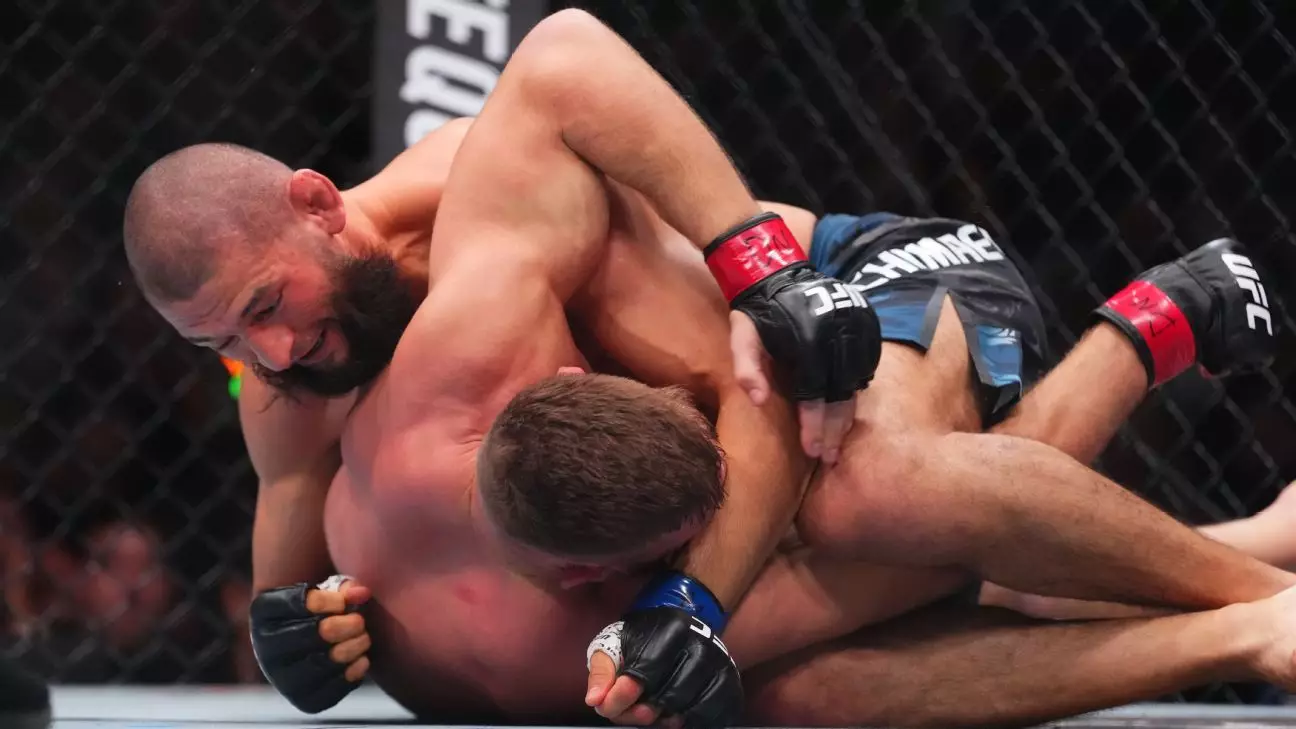Khamzat Chimaev’s journey to UFC gold is nothing short of extraordinary. An athlete once considered a prodigy, his potential hovered in the realm of speculation until his overwhelming victory at UFC 319. It is rare in combat sports to witness such a meteoric rise, and even rarer when that rise culminates in a dominant championship victory. Chimaev’s transformation from a promising newcomer to fearless champion reinforces the idea that he is not merely a fleeting star but a true force reshaping the UFC landscape.
His debut in 2020 ignited immediate attention due to his aggressive style and destructive early wins. The narrative that he would quickly ascend to championship heights was undeniable, yet injuries, illnesses, and external challenges delayed his ascent. Against all odds, Chimaev persisted, accumulating a perfect, unblemished record and defeating high-caliber opponents like Kamaru Usman and Robert Whittaker. These victories serve as testament to his relentless work ethic and natural talent, reinforcing the notion that he will not be just a transitional champion but a long-term dominant force.
Strategic Mastery and Relentless Pressure: The Blueprint of Victory
Chimaev’s victory at UFC 319 was an exhibition of tactical brutality and physical control. His approach was a relentless grind: activating takedowns early and often, dictating the pace and space of the fight. His 12 takedowns, tying him with some of the greatest in UFC history, demonstrated his supreme grappling intelligence and stamina. Winning rounds through positional control, especially by dominating Du Plessis in crucifix positions, illustrated not only strength but an intuitive understanding of fight control that most fighters only dream of.
The striking volume was staggering—529 total strikes landed, shattering previous UFC records—and underscored how Chimaev’s pressure suffocated his opponent. It was not merely striking for the sake of scoring but a calculated assault designed to break Du Plessis’s will and limit his offense. This fight exemplifies the evolution of MMA: controlling fights through volume, positional dominance, and strategic execution, rather than relying solely on knockout power.
What makes Chimaev’s victory even more impressive is his mental composure. Despite the utter dominance, he remained respectful and humble, acknowledging his opponent’s toughness and heart. His self-described approach—”I never have a game plan, just go in and work”—may seem simplistic, but in reality, it signifies a fighter with an instinctive feel for combat, trusting his skill and conditioning above all.
Chimaev’s Challengers and the Future of a Reign
While Chimaev’s victory cements his status as a formidable champion, questions linger about the durability and longevity of his reign. Dricus Du Plessis, a tough and resilient opponent, endured the relentless assault but showed genuine respect for Chimaev’s control and skill. This respect hints at the respect others will have to give him as he consolidates his grip on the title.
However, what truly sets Chimaev apart is his potential to elevate the division. His aggression, fight IQ, and physicality suggest he is built for a long reign—if he can avoid the injuries and illnesses that have hampered his journey. The natural evolution of a champion involves facing diverse styles and testing mental resilience under pressure. Fighters like Israel Adesanya, Robert Whittaker, or even newcomers emerging from the welterweight ranks could pose challenges, but Chimaev’s ability to adapt and impose his will makes him a nightmare for anyone in the middleweight division.
In essence, Chimaev’s rise challenges the conventional paradigm of UFC championship reigns. He is not just expected to win but to dominate, revolutionizing how fighters approach pressure, control, and volume striking. His record-breaking performance at UFC 319 isn’t just a statistic; it’s a declaration that a new powerhouse has arrived—a fighter who, if he remains healthy and focused, could redefine what it means to be a UFC champion in the modern era.


Leave a Reply